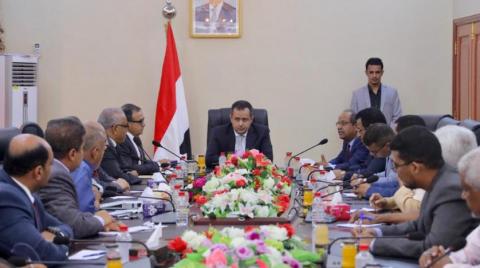Yemen war: Has anything been achieved?


This summer's partial withdrawal of Emirati forces from Yemen, while the war still drags on, prompts the inevitable question - has anything been achieved by anyone in this conflict? Even the United Arab Emirates (UAE) - Saudi Arabia's closest ally - pronounced on 22 July: "There was no easy victory and there will be no easy peace."
Let's start with the downside. What has been lost and the scale of the disaster here is quite staggering.
The Yemen war, now in its fifth year, has rightly been branded the worst humanitarian crisis of our time. Estimates of those killed range from 10,000 to more than 70,000, the vast majority being Yemenis and an estimated two-thirds of those deaths from Saudi-led air strikes.
According to the UN's Under-Secretary General for Humanitarian Affairs, Mark Lowcock, there are more than 30 front lines; more than 3.3 million people have been displaced; and 80% of the population need assistance and protection, including 10 million now reliant on food aid.
Transpose those figures on to a UK population and it would notionally mean 53 million people needing help and protection.
So Yemen, already the Arab world's poorest country, has been plunged ever deeper into poverty and economic disaster.
This year, the Yemen war is already spreading beyond its borders, with missile and drone attacks by Houthi rebels on Saudi border towns, on shipping in the Red Sea and reportedly even on targets as far away as Riyadh and the UAE.
Yet for Yemen's legitimate, UN-recognised government and its Saudi and Emirati backers, this war has always been about preventing an unacceptable takeover of the country by a tiny minority with links to Iran - the Houthis. And in that, they have succeeded, albeit at a terrible price paid by the people of Yemen.
The war did not begin with the Saudi-led air campaign in March 2015. It began six months earlier when the Houthis, a small, largely unheard-of Yemeni tribal group from the mountainous north, marched on the capital, Sanaa, and evicted the legitimate government.
Then, with the backing of forces loyal to the ousted former Yemeni President Ali Abdallah Saleh, the Houthis took over most of the populated areas of Yemen.
For Saudi Arabia, Iran's regional rival, this felt like an Iranian-backed coup on its southern frontier and the ruling princes resolved to act.
Propelled by its experienced defence minister and now Crown Prince, Mohammed bin Salman, Saudi Arabia put together a hastily-assembled coalition and began a devastating campaign of air strikes on Houthi positions.
When I visited its operations centre in Riyadh in April 2015, the coalition spokesman was confident that within a few months Houthi resistance would crumble and they would effectively sue for peace. Yet more than four years on, the air strikes continue. There have been peace talks, but no peace.

Yemeni officials on Monday condemned arrests and prosecutions by the Iran-backed Houthi militia directed against media, journalists and celebrities…

Yemen's warring parties are gearing up for new waves of conflict in 2023 amid a lack of decisive steps towards sustainable peace, adding to the suf…

The UAE will help to recruit doctors and deliver crucial supplies for hospitals in Yemen under a major healthcare drive. The Khalifa bin…